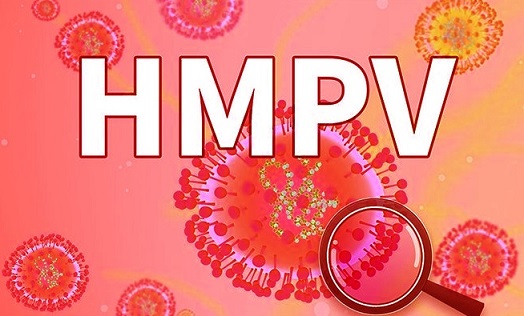SPINT2 Inhibits Proteases Involved in Activation of Human Metapneumoviruses (HMPV)
Nikhil Prasad Fact checked by:Thailand Medical News Team Jan 17, 2025 2 months, 4 weeks, 1 day, 10 hours, 30 minutes ago
Medical News: An Insightful Discovery into Viral Protease Inhibition
A groundbreaking study by researchers from Cornell University, Ithaca-USA and the University of Kentucky, Lexington-USA, has unveiled the potential of SPINT2, a serine protease inhibitor, in combating influenza viruses and human metapneumoviruses (HMPVs). This research sheds light on how SPINT2 can block essential proteases that facilitate viral activation, paving the way for novel antiviral therapies.
 SPINT2 Inhibits Proteases Involved in Activation of Human Metapneumoviruses (HMPV)
Understanding SPINT2 and Its Role
SPINT2 Inhibits Proteases Involved in Activation of Human Metapneumoviruses (HMPV)
Understanding SPINT2 and Its Role
Viruses like influenza and HMPV rely heavily on host cell proteases to activate their fusion proteins, enabling the virus to penetrate host cells. The SPINT2 protein, encoded by the mammalian SPINT2 gene, specifically targets trypsin-like serine proteases. These enzymes play a critical role in the cleavage of viral proteins, a step crucial for viral replication and spread.
This
Medical News report delves into the study, which demonstrated SPINT2's ability to inhibit protease-mediated cleavage of fusion proteins in a variety of influenza subtypes, including H1N1, H3N2, and H7N9, as well as in HMPVs. Researchers noted that the inhibition was effective even when SPINT2 was applied 24 hours post-infection, highlighting its therapeutic promise.
A Novel Broad-Spectrum Antiviral Approach
The primary objective of the study was to explore SPINT2 as a broad-spectrum antiviral solution targeting host factors rather than viral proteins. Unlike vaccines and traditional antiviral drugs, which often lose efficacy due to viral mutations, SPINT2 works by interfering with host proteases necessary for viral activation. This approach significantly reduces the chances of resistance development.
Key Findings from the Study
-Protease Inhibition Efficacy:
Using a peptide cleavage assay, researchers tested SPINT2 against several proteases, including matriptase, KLK5, and TMPRSS2. These proteases are known to activate both influenza and HMPV fusion proteins. SPINT2 exhibited high inhibition efficacy, with IC50 values (the concentration required to inhibit 50% of enzymatic activity) in the nanomolar and picomolar ranges for influenza and HMPV proteins, respectively.
-Viral Growth Reduction:
In cell culture experiments, SPINT2 was shown to reduce viral loads of influenza A subtypes and HMPVs. When added to infected cells, SPINT2 inhibited protease-mediated cleavage of viral proteins, significantly impairing viral replication.
-Cleavage and Fusion Inhibition:
SPINT2 effectively prevented the cleavage of full-length influenza hemagglutinin (HA) and HMPV fusion (F) proteins by matriptase and KLK5. This prevention curtailed the virus's ability to infect neighboring cells, as demonstrated through cell-cell fusion assays.
ng>-Timing and Effectiveness:
Remarkably, SPINT2 maintained its efficacy when administered 24 hours post-infection, a feature critical for treating ongoing infections. This sets SPINT2 apart from many antivirals that require early administration to be effective.
Implications for Respiratory Viruses
Influenza and HMPV are leading causes of respiratory illnesses, particularly among children, the elderly, and immunocompromised individuals. While vaccines are available for influenza, their efficacy can be limited by antigenic drift and resistance. HMPV, on the other hand, lacks approved vaccines or antiviral therapies, leaving a significant gap in treatment options.
The study’s findings suggest that SPINT2 could serve as a broad-spectrum antiviral, not just for influenza and HMPVs but potentially for other viruses relying on similar proteases, such as SARS-CoV and MERS-CoV. By targeting shared host factors, SPINT2 offers a universal approach to combating diverse respiratory pathogens.
Safety and Future Directions
Importantly, the researchers assessed SPINT2's safety profile. Cytotoxicity assays revealed minimal impact on cell viability at therapeutic concentrations, supporting its potential for clinical applications. However, higher concentrations might be required in certain scenarios, such as infections with high protease expression levels.
Looking forward, the study’s authors propose further exploration into SPINT2’s mechanisms. Optimizing its inhibitory properties and delivery methods, such as aerosol formulations, could enhance its therapeutic efficacy. Additionally, researchers aim to investigate SPINT2's role in combating other protease-dependent viruses.
Conclusion
SPINT2 represents a promising advancement in antiviral therapy, offering a novel mechanism to target host factors essential for viral activation. Its broad efficacy across influenza and HMPV subtypes, coupled with its safety and potential for post-infection treatment, positions it as a strong candidate for clinical development.
As the study concludes, “SPINT2 exhibits the potential to serve as a novel and efficient antiviral therapeutic to relieve patients from influenza A, human metapneumovirus, SARS-CoV, and potentially other respiratory viruses that require these host factors for entry.”
The study findings were published in the peer-reviewed journal: Virology.
https://www.sciencedirect.com/science/article/pii/S0042682220300040
For the latest HMPV News, keep on logging to Thailand Medical News.
Read Also:
https://www.thailandmedical.news/news/columbia-university-study-finds-that-the-phytochemical-ginkgolic-acid-can-inhibit-human-metapneumovirus-infectivity
https://www.thailandmedical.news/news/cellular-autophagy-in-human-metapneumovirus-hmpv-infections
https://www.thailandmedical.news/news/stat2-plays-a-crucial-role-in-the-host-s-susceptibility-to-hmpv
https://www.thailandmedical.news/articles/hmpv-human-metapneumovirus
